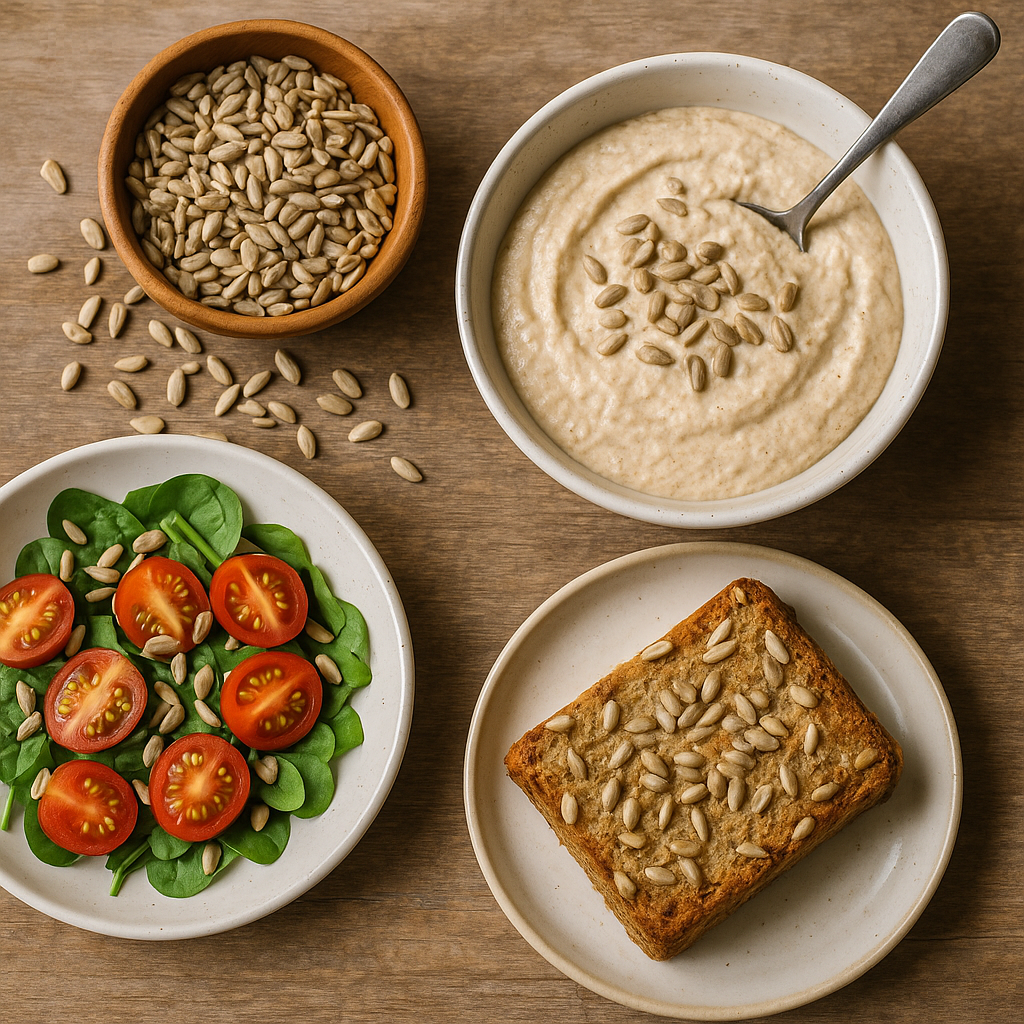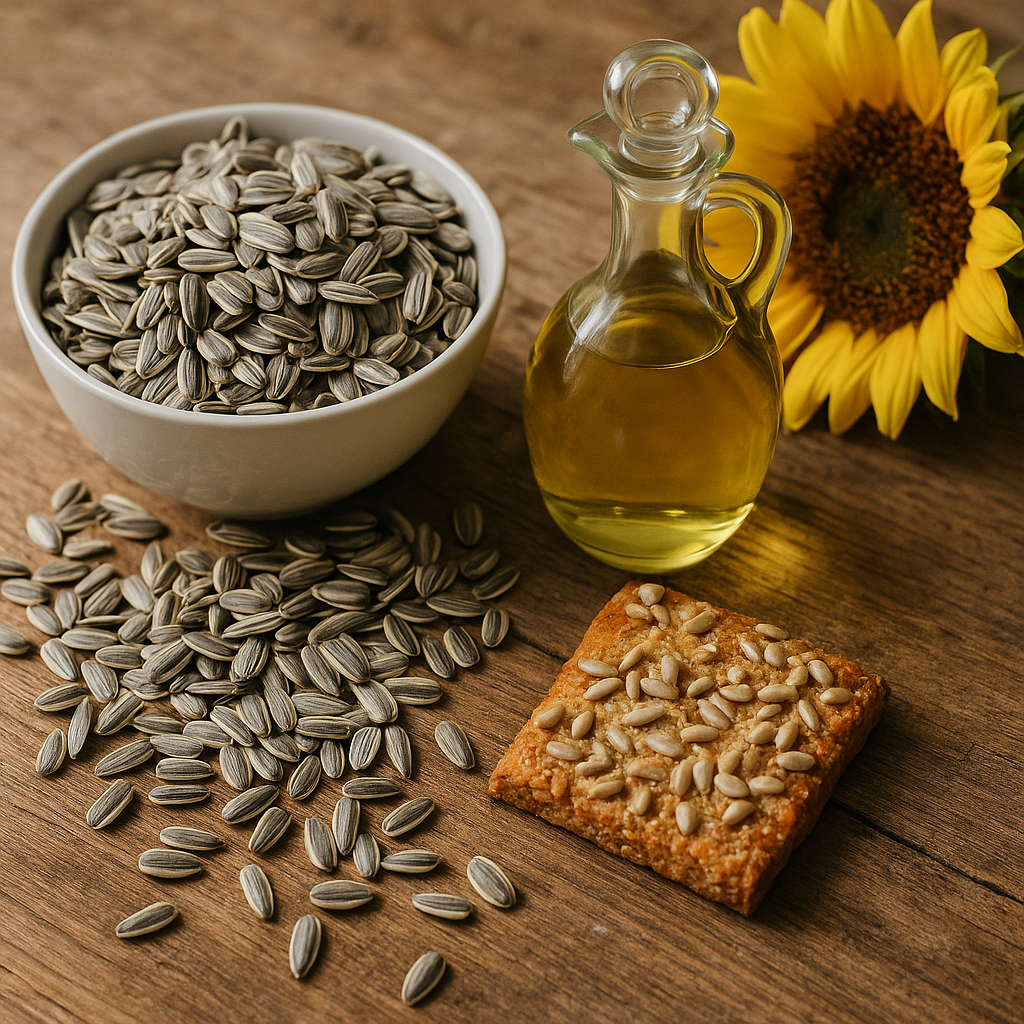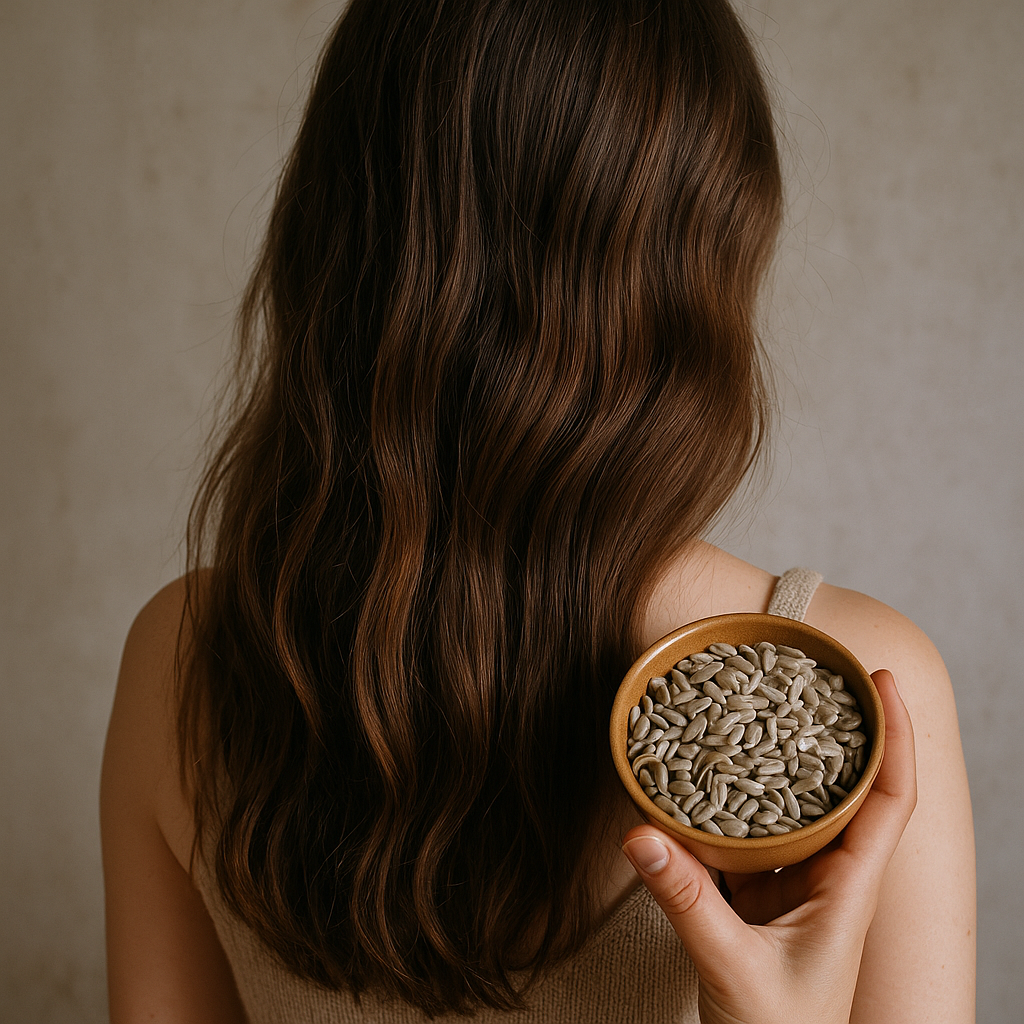Ask Ayurvedic doctor a question and get a consultation online on the problem of your concern in a free or paid mode. More than 2,000 experienced doctors work and wait for your questions on our site and help users to solve their health problems every day.
How to Use Sunflower Seeds for Health, Hair, and Weight Management

Sunflower seeds might look small, but don’t let their tiny size fool you. These little nutrient-packed powerhouses are full of healthy fats, protein, fiber, vitamins, and minerals. If you’ve ever wondered how to use sunflower seeds in your diet or beauty routine, you’re in the right place. In fact, the sunflower seeds uses are so varied that they can easily fit into your daily life — whether you’re aiming to improve hair health, support digestion, or even drop a few pounds.
Not only are they delicious, but the uses of sunflower seeds extend far beyond just a crunchy snack. From boosting heart health to enhancing your skin’s glow, the potential is huge. And yes, they’re surprisingly affordable for the benefits they bring. Let’s dive deeper into exactly what is the use of sunflower seeds, plus some clever ways you can enjoy them every single day.
What Are the Main Uses of Sunflower Seeds?
Sunflower seeds aren’t just for birds (though they probably love them more than we do!). For humans, they’re a versatile superfood with both nutritional and therapeutic benefits. They can be eaten raw, roasted, sprouted, or ground into butter — and each method comes with its own perks.
What Is the Use of Sunflower Seeds in Daily Life
On a daily basis, the use of sunflower seeds can mean anything from sprinkling them over your salad to adding them in smoothies. Many people snack on them plain or roasted, as they’re rich in healthy fats and a great source of plant-based protein. Plus, they’re portable — just toss some in a small jar, and you’ve got a quick, energy-boosting snack.
They’re also popular as a topping for yogurt, cereal, or oatmeal. This not only adds crunch but also boosts your meal’s nutritional value without much effort. And if you bake? Sunflower seeds can easily be mixed into bread, muffins, or cookies.
Common Ayurvedic Uses of Sunflower Seeds
In Ayurveda, sunflower seeds are considered a warming food, often used to balance Vata and Pitta doshas. Traditionally, they’ve been used to promote vitality, improve digestion, and nourish the skin. Some practitioners recommend sunflower seed milk (similar to almond milk) for its cooling, hydrating qualities in hot weather.
Ayurvedic recipes might combine ground sunflower seeds with herbs like ashwagandha or turmeric to create tonics that support immune health. It’s also said that sunflower oil massage can help reduce dryness and strengthen hair roots — which we’ll get to in the next section.

How to Use Sunflower Seeds for Hair and Skin
When it comes to beauty benefits, sunflower seeds are a bit of an unsung hero. They’re loaded with vitamin E, biotin, and essential fatty acids, all of which support healthy hair and skin from the inside out.
Sunflower Seeds for Hair Growth and Strength
If you’re looking for natural ways to encourage hair growth, sunflower seeds for hair should be on your list. They contain zinc and selenium, minerals known to support scalp health and stimulate follicles. Consuming a small handful (about 1–2 tablespoons) daily can help provide these nutrients.
For a more direct approach, some people even grind seeds into a paste and mix with coconut oil as a DIY scalp mask. This may help strengthen roots and add shine, though you’ll probably need to wash your hair twice to get rid of the oily feel (been there, done that!).
How to Use Sunflower Seeds for Healthy Skin
The vitamin E in sunflower seeds helps protect skin cells from free radical damage, keeping your complexion looking fresh and youthful. Eating them regularly can improve skin elasticity, while topical sunflower oil can help with dryness.
You can also add crushed seeds to homemade face scrubs for gentle exfoliation. Just remember — don’t scrub too hard, otherwise you’ll end up with redness instead of a glow.

Using Sunflower Seeds for Weight Loss and Digestion
If you’re on a health journey, sunflower seeds for weight loss might be one of those little secrets that make a big difference. They’re not a magic pill (sorry, nothing is), but they can help you feel full longer and keep your energy steady — which is half the battle when you’re trying to lose weight without feeling miserable.
These seeds are rich in fiber, which slows down digestion and helps regulate blood sugar. That means fewer sudden cravings for sugary snacks. Plus, the protein and healthy fats keep you satisfied, so you’re less likely to raid the fridge an hour after eating.
Benefits of Eating Sunflower Seeds for Weight Loss
The uses of eating sunflower seeds in a weight-loss plan come from their nutrient density. Instead of loading up on empty calories, you’re giving your body something that actually fuels it. A small serving (around ¼ cup) has about 6 grams of protein, 14 grams of healthy fat, and plenty of micronutrients.
They’re also a good source of magnesium — which is often called the “calm mineral.” Why does that matter for weight loss? Because stress can mess with your appetite and metabolism. Magnesium helps relax the body, so you might snack less out of stress or boredom.
Best Time and Way to Eat Sunflower Seeds for Digestion
If you’re focused on digestion, timing can help. Many nutritionists recommend eating sunflower seeds either in the morning or as a mid-afternoon snack. Having them early in the day gives your body time to break down the fats and fiber, preventing bloating later.
To improve digestion, you can soak sunflower seeds overnight. This process softens them and reduces certain compounds (like phytic acid) that can block nutrient absorption. Just drain and rinse before eating — they’ll taste slightly milder but still delicious.
Oh, and here’s a tip I learned the hard way: don’t go overboard. Eating too many at once might leave you feeling… let’s just say, not great in the stomach department.

Sunflower Seeds Recipes and Preparation Methods
Now for the fun part — how to actually eat them in ways that make you look forward to it. There are dozens of sunflower seeds recipes, from sweet to savory, and you can adapt them to suit your taste.
Easy Sunflower Seed Recipes for Everyday Diet
-
Sunflower Seed Butter – Blend roasted seeds in a food processor until creamy. Add a touch of honey or sea salt if you like. Spread it on toast, apple slices, or use in baking.
-
Salad Sprinkle – Toss a handful of toasted seeds over salads. They add crunch, flavor, and extra nutrition without making it feel like “health food.”
-
Smoothie Booster – Add a spoonful of raw seeds to your morning smoothie for an extra protein and fiber kick. You barely taste them, but your body will thank you.
-
Energy Bites – Mix sunflower seeds with oats, nut butter, and dried fruit. Roll into small balls and refrigerate. Perfect for a quick grab-and-go snack.
The best thing is you can keep them roasted and ready in a jar, so you can just grab a spoonful whenever you want.
Conclusion
So, we’ve covered quite a lot here — from how to use sunflower seeds in your daily meals, to their benefits for hair, skin, weight loss, and digestion. Honestly, it’s amazing how such a small seed can have so many big impacts on your health and beauty.
The best part? They’re affordable, easy to find, and ridiculously versatile. Whether you toss them in a smoothie, whip them into a quick sunflower seed butter, or use them as part of a DIY hair mask, the uses of sunflower seeds are only limited by your imagination (and maybe your pantry space).
If you take anything away from this, it’s that simple habits often create the biggest changes. Adding a handful of sunflower seeds to your routine isn’t a huge shift, but do it consistently and you might just see — and feel — the difference.
And hey, if this little guide helped you, why not share it with someone? Your best friend, your aunt who’s always looking for “the next superfood,” or maybe even your coworkers (yes, the ones always raiding the office snack drawer).
FAQs
How to use sunflower seeds for hair growth?
You can eat a handful daily to nourish your hair from the inside thanks to vitamin E, zinc, and selenium. Or, try a DIY hair mask by blending seeds with coconut oil and applying to your scalp. Leave for 20–30 minutes before washing.
What is the best way to eat sunflower seeds for health?
Roasted or raw — both are great. For better digestion, soak them overnight. Add to salads, smoothies, yogurt, or just snack on them plain.
Can we eat sunflower seeds every day?
Yes, but in moderation. Around 1–2 tablespoons a day is enough for most people. Eating too many can cause digestive discomfort (trust me, it’s not fun).
Final Thoughts
It’s funny — a lot of people think you need fancy supplements or expensive treatments to look and feel better. But sometimes, the answer is sitting right there in a small bag at your local grocery store.
The uses of eating sunflower seeds aren’t just about nutrition. They’re about creating small, positive rituals that make you feel more energized, confident, and in control of your health. Whether you’re aiming for stronger hair, clearer skin, better digestion, or just a tastier salad, these seeds have got you covered.
So here’s your challenge: for the next two weeks, add sunflower seeds into your diet every day. Track how you feel, your energy levels, even how your skin and hair look. You might be surprised at the results — and if you are, well, you’ll have a story worth telling (and sharing!).
One last thing — if you’ve got a favorite sunflower seeds recipe or a unique way you use them, post it online and tag a friend to try it too. Healthy habits are contagious… in the best way possible.

